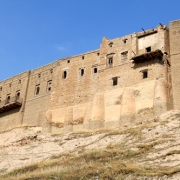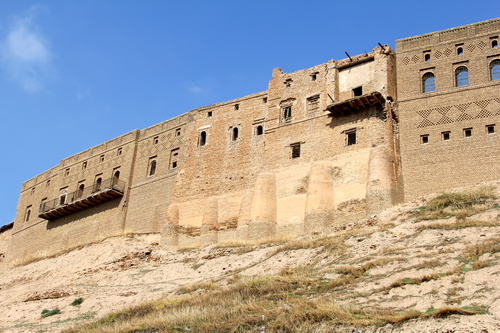Praying to the God You Know
Then Hezekiah prayed before the LORD, and said: “O LORD God of Israel, the One who dwells between the cherubim, You are God, You alone, of all the kingdoms of the earth. You have made heaven and earth. Incline Your ear, O LORD, and hear; open Your eyes, O LORD, and see…. Now therefore, O LORD our God, I pray, save us from his hand, that all the kingdoms of the earth may know that You are the LORD God, You alone.” (2 Kings 19:15-19)
Hezekiah, King of Judah, was faced with the worst crisis of his reign. The mighty Assyrian army had already conquered the northern kingdom of Israel and many others and was now circled outside the walls of Jerusalem.
Yet in his response, Hezekiah spoke to God in the manner of a true believer, in the way someone who really knows God prays. Look at the many ways Hezekiah referred to God in this prayer.

God of Israel: This title for God reminded Hezekiah – and the LORD also, in our human way of understanding – that the LORD God was the covenant God of Israel, and that He should not forsake His people.
The One who dwells between the cherubim: Hezekiah saw the great heavenly majesty of God. Surely, the One who dwells between the cherubim would never allow the blasphemies of the Assyrians to go unpunished.
You are God, You alone: God is a simple title for our LORD, but perhaps the most powerful. If He is God, then what can He not do? If He is God, then what is beyond His control? Hezekiah realized the fundamental fact of all theology: God is God, and we are not! God is God, and the Assyrians were not!
You who made heaven and earth: In recognizing the LORD God as Creator, Hezekiah saw that the LORD had all power and all rights over every created thing. We can almost feel Hezekiah’s faith rising as he prayed this!
Remember that Hezekiah had the scrolls of Scripture existing at that time, and the word of the LORD through Isaiah the prophet and others. It was through this word that Hezekiah really knew who God was, and was able to call upon the God he knew in a time of crisis. It is important for us to know God and understand Him through the Bible, so that when crisis comes we really know the God we cry out to. It made a difference for Hezekiah and it will make a difference for us.
At the end of it all, Hezekiah’s prayer was gloriously answered. In a turning point of history, the armies of Assyria surrounding Jerusalem were almost completely destroyed in one night by an angel from God. Hezekiah’s prayer was answered, and it was largely answered because he knew who God was, and it was seen in the way he spoke to God in his prayer.
How well do you know Him?









